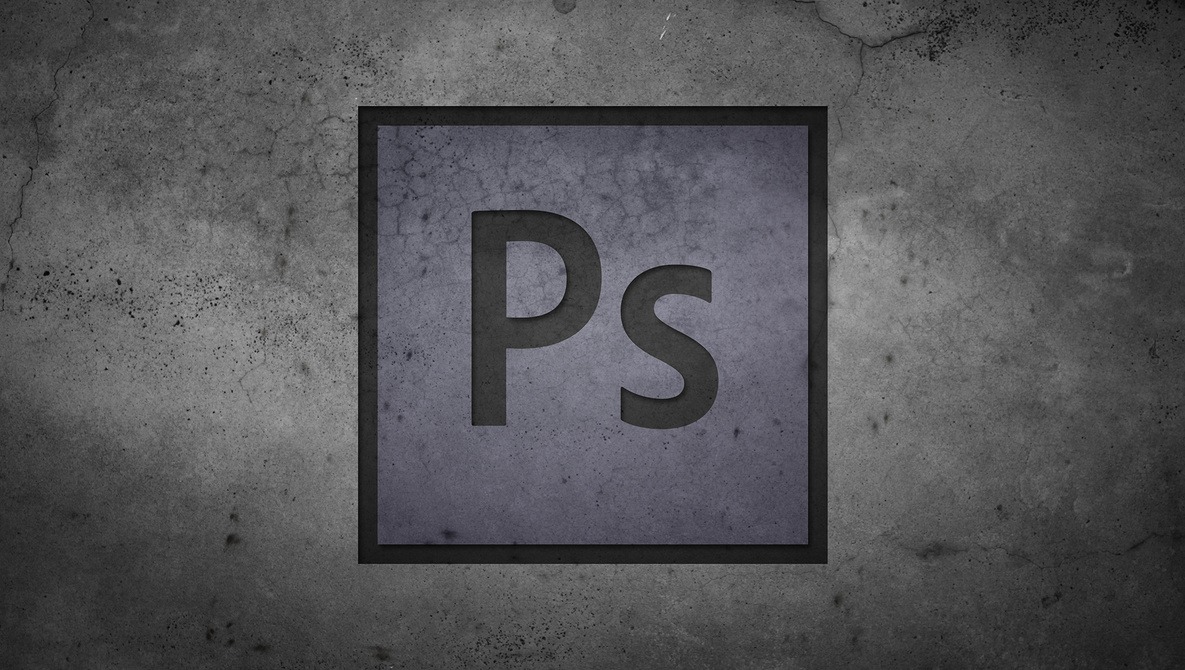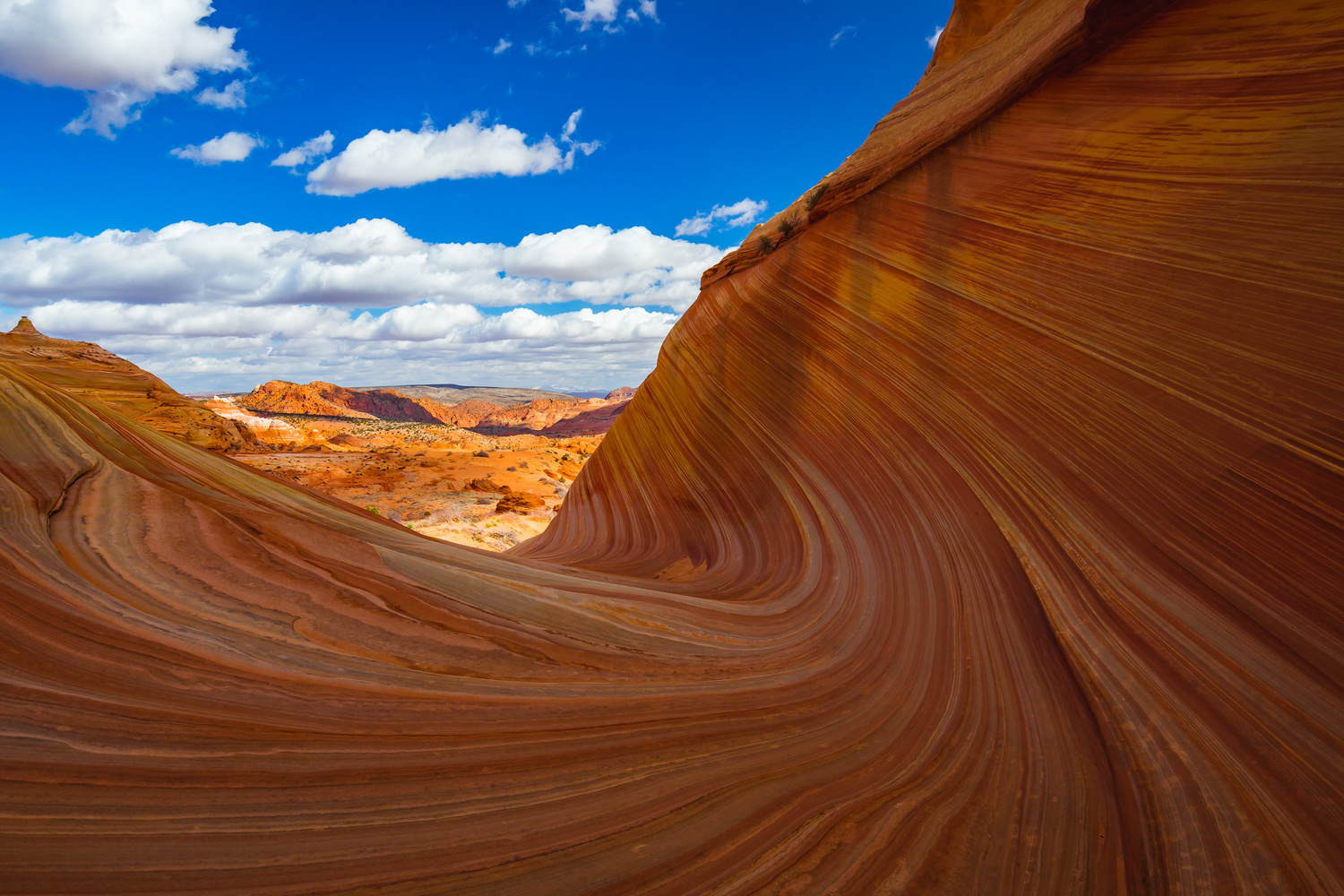"Is that Photoshopped?" We've all heard it; we might have even said it at one time. But the reality is that it's a ridiculous question in the first place because "Photoshop" is not a verb. Perhaps those asking the question are simply asking the wrong question, because quite frankly, it shouldn't matter whether Photoshop was used or not.
I know, I know, there are more than plenty conflicting opinions out there concerning whether one should alter their images or not. For starters, consider this: if you, the artist, like what you are looking at, then it really shouldn't matter how you created it, nor should it matter what anyone else thinks of it. Now, if you intend to sell this particular piece of art, whether photograph or digital illustration or anything else, then it very much matters what other people think of it; otherwise, you might not make any money. At this point, it's really up to you to decide what (and how) to communicate to your clients about the artwork itself.
A before/after comparison of an image processed solely in Adobe Lightroom.
This applies to a wide range of digital artwork, but since we focus mainly on photography here, the topic today is centered around producing photographic images and how you go about creating what it is that you publish for display of any kind. Most of you who read this are probably already familiar with how pictures were created before the digital age, but just in case you aren't, here's a very simple overview. Before digital cameras, images were captured on film, a tangible medium, as a negative of what you were seeing. The negative was then developed through a chemical process making it no longer sensitive to light, at which point light was shot through the negative to project the image on light sensitive paper (or other print formats). The print paper was then processed in a series of chemical solutions to make the image permanent and no longer sensitive to light.
Darkrooms were designed specifically to bring images from film negatives and process them to a viewable display format. There were and are still a myriad of things that the developer can do to an image while processing it in the darkroom. There are techniques for spot removal, filters for contrast, methods for dodging, burning, vignetting, and even ways to splice images for double exposures and sky replacements. Granted, it all takes a lot more time in a wet lab photo shop than it does in the software program Photoshop. But the methods used weren't designed, developed, or used to try to create anything other than the best possible product. Perhaps now it is more clear why using "Photoshop" as a verb really is just silly. You wouldn't look at print of a film negative and ask if it was "darkroomed," because you know that it's a stupid question. Realistically, the same rule really ought to apply to today's digital darkrooms such as Photoshop, Lightroom, Capture One, and any other program you chose to take your digital negatives from camera to display.
A before/after comparison of an image processed solely in Adobe Lightroom.
Now, before our purists freak out too much further, we should probably talk about the difference between photography and graphic artistry. A lot of the difference between photography and graphic art is simply the amount of manipulation or compositing that takes place in an image. A photograph is usually processed, either in a digital darkroom or if left alone, then it still has the "image processing" from the camera manufacturer's design that decides how the image looks. But processing an image is different than altering an image in ways to add elements that weren't there or to remove elements that were there. Again, it really shouldn't matter as long as you play to the correct audience. For example, it wouldn't do to alter an image by removing people from it and adding in a new sky and describing it as what you saw in person, because it would be false representation.
Unless you're trying to document something specific, record the reality of an event, or present your image as true to scene, then image alteration should really be up to your own personal taste. There are more than a few photographers out there who have built some incredibly successful careers by creating and selling images that have elements within them that didn't exist when the shutter was pushed for the original photograph. To most people, it really won't matter whether Photoshop was used or not, unless you claim that the image is unaltered. Of all the photographers, retouchers, and digital artists out there, Peter Stewart is one of my favorites. His work is a solid mix of works that were merely processed, as well as others that were more dramatically enhanced using the refined tools available in Photoshop. In fact, he doesn't even try to hide the fact that he uses Photoshop to embellish some of his pieces; he has an entire gallery of before and after comparisons. In fact, I would recommend taking a look at his before and after gallery simply because it can give you a good idea about how much can be done for a single image by using compositing techniques and other advanced image editing procedures.
A before/after comparison of a three-image HDR blended image processed both in Adobe Lightroom and Adobe Photoshop.
Adobe has done some incredible things over the years both with Photoshop and Lightroom to create some incredibly powerful image-handling programs. Even just processing an image in Lightroom, where you don't have the ability for any advanced masking or manipulation, you can still take a digital negative and adjust it in ways to create something truly unique, depending on what you want it to look like. Another reality to consider is simply the fact that there isn't a camera out there that can capture anything quite as well as the human eye sees it in person. Try as you might, your eyes are still going to have more advanced technology than whatever camera you tote around with you.
At the end of the day, really, who cares if you use (or don't use) Photoshop? Or Lightroom? Or any other program out there that handles digital photographs? What should really matter to you is that you take pride in whatever work you produce, and if you can't do that, then maybe it's time to reevaluate how you go about creating whatever it is that you create. The trick, really, is to simply present your work for precisely what it is. If you add new skies or manipulate your photos, then just don't tout them as true to life. Easy, right? There are plenty of amazing artists out there who play both sides of this field and create some incredibly inspiring images. Why let something like a fake verb hold you back?













Speech evolves. Especially when something as significant as Photoshop (or Google as I've read in the comments) comes along. Get over it.
'Perhaps now it is more clear why using "Photoshop" as a verb really is just silly. You wouldn't look at print of a film negative and ask if it was "darkroomed," because you know that it's a stupid question.'
That there is what we call a "false equivalency". While it is perfectly normal and likely that a picture can be developed in a dark room without any intentional alteration of the image, there is literally no other reason to use Photoshop. That's like saying you wouldn't look at a car that came off the assembly line and ask if it was customized, yet insisting on making fun of people asking the same thing when the car comes out of a customizing shop.
Its better than saying "Air Brushed" which is still used quite often in 2018.
people have always accepted the black and white photography as a true document, regardless the shift in color, and the composition.
but in general the term photoshopped usually refers to the composited images in the anti-true in the documentary standard . every where else is taken as enhancement. i might be mistaken but this so far how it is .
Hey Rex, thanks for the shoutout in your article :)
Very well written and argued.
I've taken a bit of flack in the past from other photographers through my liberal use of Photoshop to post-process my work. It is still a constantly evolving process. Sometimes you miss the mark and go too far, other times it can undeniably elevate an image to new levels. Most of the naysayers always seem to be fellow photographers, rather than the general viewing public who view things with a different set of eyes (unless it is framed in such a way to provoke a negative response).
A camera is just a tool at the end of the day, photography an art form with no defined sets of rules. As long as you're not trying to deceive people (aka manipulating images for photojournalism) then be free to create whatever you want.
I WILL Photoshop it, I WILL Xerox it, then Fedex it straight away. With the Semantics issue out of the way, how images, or, as some may put it, artwork, is presented will always be subjective. Unless, of course, used for pragmatic and objective purposes.
The best circumstance is when you can say "no!" when someone sees your work and insists that you "Photoshopped" it because "there is no way that is real".
Why do we keep having the same argument over and over again?
Holy hell, did you really write an article on the fallacies of using "Photoshop" as a verb. Moreover, did I just spend two minutes of my life (that I will never be able to get back) reading the article! My man, take a deep breath, grab some "Kleenex" to wipe your nose, tighten the "Velcro" on your shoes (use some "Superglue" if the strap starts to tear), go print out all the things you "Googled" while doing research for this article, "Xerox" the printout and "FedEx" that bad boy to me ASAP. If you get any paper cuts whilst preparing the "Xerox" copy, grab a "Band-Aid" and smash it on your wound. Be sure to use "Scotch Tape" on the package, and use a "Sharpie" to write my address on it. You will likely need to check your "Rolodex" to get my address, but then you can write it down on a "Post-it Note" so you don't forget it.
Whew! Okay, now snag some "Saltine" crackers, sit back in your "Lazyboy" and pray you didn't forget to "Tivo" your favorite TV show. If the volume on your TV isn't loud enough, just grab a few "Q-Tips" and clean out those ears.
Okay, maybe that was a little over the top :). (That was absolutely written tong-in-cheek). Rex, you are an excellent writer and I thoroughly enjoy your articles (and have learned a lot from them). I am sincerely grateful for you and all the writers at fstoppers.com, there really is an invaluable wealth of knowledge on the site.
Alas, photoshop is one of those proprietary eponyms that will forever be a verb for me. As a 13 year old I was fortunate enough to be using Photoshop 3.0 when a local marketing company hired me at $15 an hour (that was some serious moola back in 1994) to "Photoshop" the photos they scanned with a triple pass scanner (one pass for red, one pass for green, and one pass for blue).
Again, I really do appreciate your writing and I hope my response came across in good humor, as it was intended.
- James